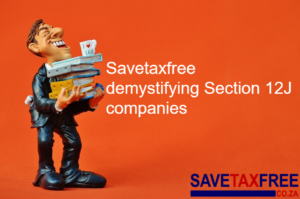Savetaxfree demystifying Section 12J companies
By Leya Mall | 7 February 2019
When I hear tax free, I think of all the money I could be saving. Well good news folks, there’s another tax-free investment you probably haven’t even heard of.
“Impossible,” you must be thinking, but it’s true. They call this investment a Section 12J company. So, what the heck is this fancy sounding term?
Our best friend, the South African Revenue Service (Sars), introduced Section 12J of the Income Tax Act in 2009. This act gives South Africans the opportunity to invest in local companies and — get this — receive a tax deduction on the value of their investment.
Have I piqued your interest yet? Such investments are run by venture capital companies (VCCs), approved by Sars, which manage funds that invest in a portfolio of companies. See below for the list of approved VCCs.
The investee companies are businesses that are seeking investors and funding, usually to expand their operations in one way or another. And the reason Sars is being so unusually generous is because a flourishing small business sector is needed for strong economic growth and job creation. Small businesses are often referred to as the engine of an economy.
Be cautious, however: investing in small businesses can be highly risky. If you wish to make such an investment, be sure to do your homework. Not all VCC’s are the same and there are many risks that need to be considered here, including the risk of non-compliance with the legislation, which can end with harsh penalties applied to the VCC and therefore investors.
In order to benefit from the tax deduction offered by Section 12J of the Income Tax Act you need to hold the shares of the venture capital company you have invested in for at least five years. Any sale of these shares before the end of the five-year window will lead to a full recoupment of the tax deduction originally offered. (That is assuming you can find someone to buy your shares in the first place.)
There are a few other issues to consider:
- Anyone who buys your shares in the VCC is not able to claim a tax deduction (the deduction is only for subscription for new shares)
- If you pass away or emigrate you will have a full tax recoupment.
- There is a sunset clause in 2021 where Section 12J may be removed from the Income Tax Act, meaning no new investments post that date.
- There is NO guarantee of being able to liquidate your shares after the SARS requirement of five years. You may have to remain invested for longer depending on the characteristics of the specific VCC or underlying investee companies you are invested in.
- You are investing in an unlisted company that invests into small and medium-size businesses that themselves are unlisted. This means access to information is limited and the risks faced by the underlying investee businesses are potentially far higher than traditional listed share investing.
- The returns, however, can be lucrative should you invest in a winning company with some 12J’s targeting annual returns in excess of 30%. Small businesses have scope for huge growth if successful.
Remember this important investment principle: never invest in something just for the tax benefit. Invest because you’re confident you’ll get good returns because you’ve done your research.






